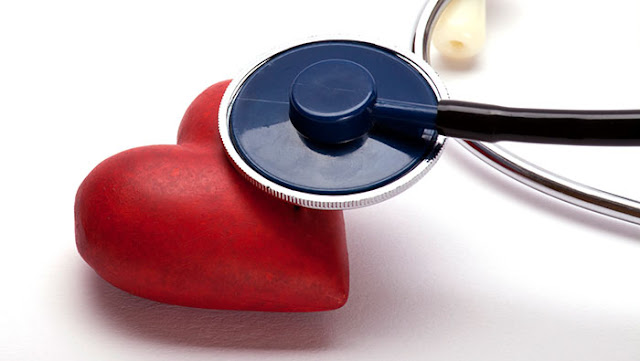How well would you say you know your heart? I am not speaking philosophically, rather very literally. As 30-somethings, how well do we know our hearts and the state of our heart health?
Heart Disease in Women is a very personal subject for me. As someone who lost their mother without warning before my 30th birthday and before mom’s 50th birthday, I realized very early on that I needed to get to know my heart a lot better. I needed to understand what my risks were and how I should take better care of myself because let’s face it… genetics can be a royal pain.
I am not sure about you but I can say that I was completely unaware of all the risks for 30 and 40 somethings. I thought, “Isn’t heart disease something that only affects (much) older women?” Sorry… the answer to that is a big fat “Nope.” I soon learned that preventative care and awareness needs to start early on. Even at 28, my heart health wasn’t exactly winning me any gold stickers at the cardiologist.
GoRedForWomen.Org says:
● Heart disease causes 1 in 3 women’s deaths each year, killing approximately one woman every minute.
● 90 percent of women have one or more risk factors for developing heart disease.
● Since 1984, more women than men have died each year from heart disease and the gap between men and women’s survival continues to widen.
● The symptoms of heart disease can be different in women vs. men, and are often misunderstood.
● While 1 in 31 American women dies from breast cancer each year, 1 in 3 dies of heart disease.
Pay attention to what your body is telling you!
While many of these are common ailments, they can also be symptoms of heart disease related issues:
● Back, neck, and/or jaw pain
● Anxiety
● Sleeping issues
● Vomiting and/or nausea
● Feeling tired or weak
● Dizzy and lightheaded
● Trouble catching your breath
● Chest pain or indigestion
What we can do to help prevent heart disease:
● Quit smoking! Today! Seriously, smoking is a disgusting habit that doesn’t do anyone any good. It’s expensive, dangerous and the leading preventable cause of death and illness in the United States. Really.
● Maintain a healthy diet (avoid these 4 diet mistakes) and get moving! An active and healthy lifestyle is one of your greatest weapons against heart disease!
● Lose the belly fat! Truth be told, body fat isn’t just a little extra padding that helps keep you warm in the winter. Belly fat includes visceral fat which is linked to Type 2 Diabetes, Cardiovascular Disease and other nasty issues.
● Know your family history and share the information with your doctors. Ask lots of questions. Learn as much as you can. You and your doctor should both understand your risks early on.
● Know your numbers!
○ What is your blood pressure?
○ How does your cholesterol rate?
○ What about that blood sugar?
What does it all mean?
Don’t just know the numbers… know what the numbers represent. How bad is your bad cholesterol? Is your blood pressure under control?
- Sleep! Did you know that rest helps lower your blood pressure. It does, so give yourself and your heart that much needed break and catch some zzz’s!
- De-stress! Take a spa day! Read a book in the tub! Relax a bit! It’s no secret that stress is no good for your body, especially your heart. Take a deep breath and find that quiet place. Doctor’s orders!
How about that diet?
WebMD recommends that you try to introduce as many of these 25 heart healthy foods into your diet (avoid these 4 diet mistakes) as you can:
1. Salmon – Omega-3 fatty acids.
2. Flaxseed(ground) – Omega-3 fatty acids; fiber, phytoestrogens.
3. Oatmeal – Omega-3 fatty acids; magnesium; potassium; folate; niacin; calcium; soluble fiber.
4. Black or Kidney Beans – B-complex vitamins; niacin; folate; magnesium; omega-3 fatty acids; calcium; soluble fiber.
5. Almonds – Plant omega-3 fatty acids; vitamin E; magnesium; fiber; heart-favorable mono- and polyunsaturated fats; phytosterols.
6. Walnuts – Plant omega-3 fatty acids; vitamin E; magnesium; folate; fiber; heart-favorable mono- and polyunsaturated fats; phytosterols.
7. Red Wine – Catechins and resveratrol (flavonoids)
8. Tuna – Omega-3 fatty acids; folate; niacin.
9. Tofu – Niacin; folate; calcium; magnesium; potassium.
10. Brown Rice – B-complex vitamins; fiber; niacin; magnesium, fiber.
11. Soy Milk – Isoflavones (a flavonoid); B-complex vitamins; niacin; folate, calcium; magnesium; potassium; phytoestrogens.
12. Blueberries – Beta-carotene and lutein (carotenoids); anthocyanin (a flavonoid); ellagic acid (a polyphenol); vitamin C; folate; calcium, magnesium; potassium; fiber.
13. Carrots – Alpha-carotene (a carotenoid); fiber.
14. Spinach – Lutein (a carotenoid); B-complex vitamins; folate; magnesium; potassium; calcium; fiber.
15. Broccoli – Beta-carotene (a carotenoid); Vitamins C and E; potassium; folate; calcium; fiber.
16. Sweet Potato – Beta-carotene (a carotenoid); vitamins A, C, E; fiber.
17. Red Bell Peppers – Beta-carotene and lutein (carotenoids); B-complex vitamins; folate; potassium; fiber.
18. Asparagus – Beta-carotene and lutein (carotenoids); B-complex vitamins; folate; fiber.
19. Oranges – Beta-cryptoxanthin, beta- and alpha-carotene, lutein (carotenoids) and flavones (flavonoids); vitamin C; potassium; folate; fiber.
20. Tomatoes – Beta- and alpha-carotene, lycopene, lutein (carotenoids); vitamin C; potassium; folate; fiber.
21. Acorn Squash – Beta-carotene and lutein (carotenoids); B-complex and C vitamins; folate; calcium; magnesium; potassium; fiber.
22. Cantaloupe – Alpha- and beta-carotene and lutein (carotenoids); B-complex and C vitamins; folate; potassium; fiber.
23. Papaya – Beta-carotene, beta-cryptoxanthin, lutein (carotenoids); Vitamins C and E; folate; calcium; magnesium; potassium.
24. Dark Chocolate – Reservatrol and cocoa phenols (flavonoids).
25. Tea – Catechins and flavonols (flavonoids).
-Phytoestrogens are substances in plants (like flaxseed) that have a weak estrogen-like action in the body. Studies suggest that flaxseed lowers the risk of blood clots, stroke, and cardiac arrhythmias. It may also help lower total and LDL “bad” cholesterol and triglycerides, and even blood pressure.
-Phytosterols are plant sterols that chemically resemble cholesterol — and seem to reduce blood cholesterol. All nuts and seeds, including wheat germ, have phytosterols.
-Carotenoids are heart-protective antioxidants in many colorful fruits and veggies. Alpha-carotene, beta-carotene, lutein, and lycopene are carotenoids.
-Polyphenols are another set of antioxidants that protect blood vessels, lower blood pressure, reduce LDL “bad” cholesterol.
-Flavonoid polyphenols include catechins, flavonones, flavonols, isoflavones, resveratrol and anthocyanins. Non-flavonoidpolyphenols include ellagic acid (found in all types of berries).
-Omega-3 fatty acids (found in fatty fish like salmon) and alpha-linolenic fatty acids (found in plant foods like walnuts) help boost the immune system, reduce blood clots, and protect against heart attacks. They also increase good HDL levels, lower triglyceride levels, protect arteries from plaque buildup, are anti-inflammatories, and lower blood pressure.
-B-complex vitamins — like Vitamin B-12 (folate) and vitamin B-6 — protect against blood clots and atherosclerosis, or hardening of the arteries. Niacin (vitamin B-3) helps increase HDL “good” cholesterol.
-Vitamins C and E are antioxidants that protect cells from free radical damage. Magnesium, potassium, and calcium help lower blood pressure. Fiber-rich foods help lower cholesterol levels.
Know your heart. Be aware of your risks. Talk to your family members and your doctor to get a complete picture..
For more information, I encourage you to visit GoForRedWomen.org where it is their mission “to build healthier lives, free of cardiovascular diseases and stroke.”
Nichole Starkey is a 30-something career gal, entrepreneur, personal blogger and student. When she isn’t all work, Nichole likes to go on mini adventures with her boyfriend and snuggle up to her furkids. Aside from her obsession with painting her nails, Nichole is equally addicted to music, coffee and wine! You can read more about her at JustSomeJane.
Facebook
Twitter: @JustSomeJane
Blog: www.JustSomeJane.com
Twitter: @JustSomeJane
Blog: www.JustSomeJane.com


good!
Very useful share !
i am not as much aware about heart disease but after reading your post this is really an very useful post for everyone i mean both for an fit person or who is ill. From now i am quieting smoking and also recommend other to stop smoking it is very dangerous for heart. I want to use that product for my mother heart problem and just give a review about that
http://www.natural-homeremedies.com/supplements/garlic/